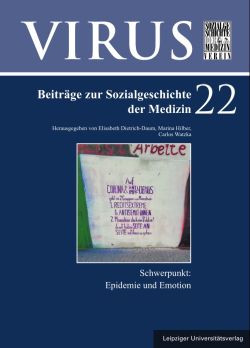
VIRUS Band 22, pp. 145-172, 2023/12/28
Schwerpunkt: Epidemie und Emotion

Widespread vaccination campaigns had already led to the near eradication of smallpox in the Habsburg Monarchy of the late 19th century, when a new surge of infections attracted the attention of both the authorities and medical experts. The specific source of the renewed spread of the virus in 1898 was soon suspected to be the religious minority of the Lipovans in Bukovina, a small community of Russian origin known for its very traditional, ascetic and isolated lifestyle. The Lipovans were notorious deniers of civil registration and professional medicine, especially vaccinations. The concept of “purity” played a major emotional role in the Lipovan belief system, and was linked to a specific abhorrence of mixing human and animal blood. Instead of medicine, the members of the community claimed to trust in God alone, so that cases of illness were even concealed and contacts with external medical experts were avoided. In 1898, this behaviour led to a regional epidemic that particularly affected the Lipovans’ unvaccinated infants. The regional authorities were slow and negligent in dealing with this health threat. Within the religious community, however, the devastating epidemic eventually led to a reorientation: according to the report of the district physician Dr. Josef Perl, several Lipovan women had their surviving children vaccinated “secretly”, and the immunity thus gained acted as a positive example for others.
Keywords: Prevention, smallpox, anti-vaccinationism, history of emotions, Bukovina, Habsburg Monarchy